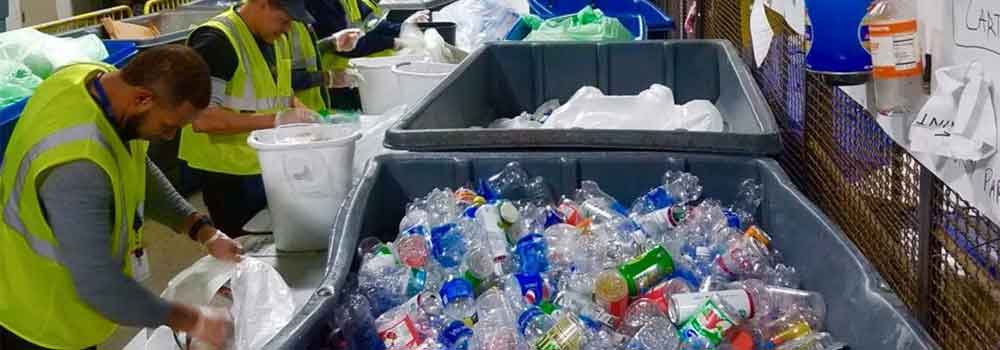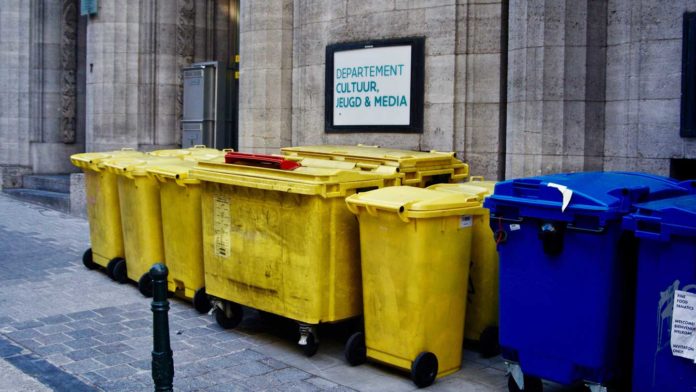Sustainable living relies on efficient trash management. Roll-off dumpsters for homes are an important part of effective garbage management. Individuals may make a big difference by sorting trash at home before dumping it.
Reducing the amount of garbage sent to landfills and increasing the number of recyclables collected are only two of the many advantages of waste separation. In addition, effective garbage sorting may reduce waste management expenses.
In this primer, we’ll go into why separating trash at the source is crucial and provide helpful advice for doing so with dumpsters at home. Therefore, continue reading before you look for a dumpster rental company near me.
Understanding the Benefits of Waste Sorting

There are many positive outcomes for the planet when the trash is separated. The quantity of rubbish delivered to landfills may be decreased by sorting recyclables apart from regular garbage.
Recycling helps preserve the Earth’s limited energy, water, and raw materials. In addition, recycling reduces emissions of harmful gases produced while creating new materials.
Recycling and reuse are encouraged rather than waste disposal via proper trash sorting. Significant reductions in waste management costs are possible as a result of this. Seeing the value in properly sorting trash might encourage us to do our bit to reduce litter.
Materials to Separate for Recycling
Separating materials is a must for efficient recycling. Items made of paper, plastic, glass, or metal are among the most often recycled. These items must be kept clean and contaminant-free before disposal.
Empty and compress cardboard boxes, remove bottle tops, and rinse all containers. By placing recyclables in separate containers, waste management companies can more easily process and transport them to recycling centers.
The effectiveness of recycling systems relies on people like us taking the time to sort recyclables into their respective bins.
Identifying Non-Recyclable and Hazardous Waste
It is important to separate recyclable trash from hazardous garbage, yet both must be recycled. Styrofoam, several types of plastic, and dirty paper should all go in the trash rather than the recycling container.
The correct disposal of hazardous waste is essential to protect human health and the environment. Batteries, electronics, and common home chemicals are all examples of hazardous trash.
Individual towns generally outline safe disposal methods. Learn where you may bring your hazardous garbage or when there will be a collection event in your neighborhood.
Organics and Compostable Waste
Composting allows diversifying organic waste from landfills, such as food scraps and yard detritus. Composting is an organic process that returns nutrients to the soil. Create a container or a pile in your yard just for composting.
Throw in leftover meat, dairy, produce, coffee grounds, tea bags, and yard waste. Meat, dairy products, and oils should be avoided since they might attract bugs. For optimal breakdown and moisture retention, turning the compost regularly is essential.
A black, crumbly substance that may be used to improve soil in gardens and potted plants is what the compost becomes over some time. Composting helps mitigate global warming by recycling dead plants and animals into a rich soil amendment.
Practical Tips for Effective Waste Sorting
Making a designated area to separate trash at home might save time and effort with help of dumpster rental company near me. Make sure you have separate containers or bags for different types of trash.
Instruct family members on the significance of waste sorting and give them specific guidelines for what goes in which trash can. Remind everyone to drain cans and fold up boxes before throwing them away.
Incorporate regular days for recycling pickup and compost upkeep into your weekly routine. Keep in mind that every effort, no matter how modest, may have a significant effect on the world around you.
Conclusion
We can help make the world a better place by adopting efficient methods of trash separation. We do our share to reduce waste and save resources by properly sorting recyclables, identifying non-recyclable and hazardous garbage, and composting organic material.
By establishing a central garbage sorting location and encouraging participation from each family, we can instill a feeling of civic duty and make waste separation an automatic part of our routine.
We can make a difference and contribute to a more sustainable future if we all do our part to ensure appropriate disposal in household dumpsters.
